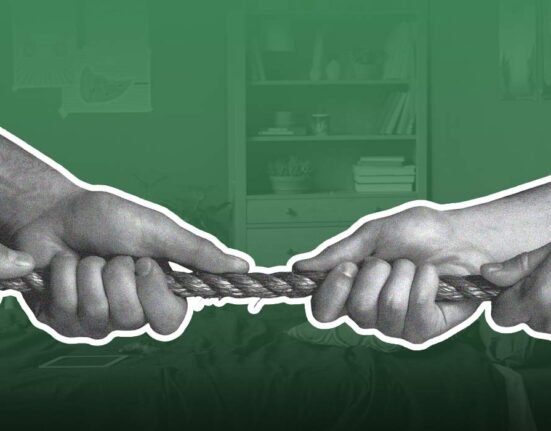As soon as a child is born, many parents begin to dream, imagining their little one growing up to become a doctor, an engineer, a lawyer, or an artist. Although these dreams often come from a place of love, sometimes, they can feel like a burden to the child. When children are pushed to follow a path that is not their own, an important question to be asked is: Are they chasing their purpose or someone else’s dream?
Read More: Are you caring or over-caring for your child?: Parental Pressure
The Weight of Expectations
The concept of parental pressure is not new. It exists across cultures. In some societies, it is more prominent. According to research, children whose parents have extremely high expectations for them are more vulnerable to experiencing negative emotions such as stress, anxiety, and even depression (Luthar & Becker, 2002). These children tend to believe that their worth is tied to their achievements.
Indeed, it is natural that parents would want the best for their kids. But problems arise when those wants turn into demands. When academic marks or job titles define success, children might start to feel like they are never truly enough. Instead of discovering what truly matters to them, they may end up in a destructive cycle of seeking approval from their parents or parent figures.
Read More: The Weight of Expectations: How Family Pressure Can Lead to Stress
When Pressure Masks as Support
Sometimes, parental pressure may come in the disguise of encouragement. A parent might say, “I just want you to succeed”. But behind that sentence may lie years of unspoken expectations. Even well-intended parental control has been shown to interfere with a child’s development of autonomy and self-identity (Soenens & Vansteenkiste, 2005).
For example, a child may start to feel that any other career choice is a letdown if they have been told early on that they must become a doctor. Consequently, they may start to suppress their actual interests just to keep their parents happy. Over time, this can create a gap or incongruence between their real self, that is, who they are and their ideal self, that is, who they feel they should be.
Read More: Ideal self vs Real self
The Price of Pursuing the Wrong Dream
Chasing someone else’s dream can feel like running a race with no finish line. Even if the child reaches the “goal”, let’s say, the particular degree, job, or status, it may not make them feel happy. A mismatch between personal values and chosen career paths has been linked to lower job satisfaction and mental well-being (Kasser & Ryan, 2001). When one is disconnected from their inner desires, they often feel lost, even if they appear “successful” on the outside. Over time, this disconnect can end up in burnout, regret, and confusion about identity. A 2015 study by Schiffrin et al. showed that students who felt overly pressured by parents were more likely to experience psychological distress and less likely to feel fulfilled in their accomplishments.
Read More: Are You Chasing What You Want or What You Need?
The Importance of Purpose
On the other hand, children who feel supported and encouraged to explore their purpose tend to thrive. Purpose is what gives life direction and meaning. This purpose could be different for everyone, like teaching, building things, helping others, or creating art. According to research by Damon (2008), young people with a strong sense of purpose are more motivated, resilient, and optimistic. They are more likely to work hard, and it is not because someone told them to, but because they care about the outcome. When purpose comes from within, achievement becomes more than just performance. It becomes a passion.
Finding a Middle Ground
In no way does this mean that parents should take a hands-off approach. Guidance is important. But there is a fine line between guidance and control. Encouraging curiosity, allowing space to explore different interests, and listening to what a child values can go a long way. Open communication is key. Parents can ask questions like: “What makes you feel excited to wake up in the morning?” or “What kind of problems do you want to help solve in the world?” These questions shift the focus from what the parent wants to what the child values. A study by Wang & Heppner (2002) found that parental support, when combined with emotional warmth and open dialogue, helped adolescents make better career decisions and feel more confident in their choices.
Read More: The Role of Parents in Career Choice
Real Stories, Real Struggles
We have all heard stories of individuals who became doctors or engineers to fulfil their parents’ wishes, only to later switch careers or feel unhappy despite “success.” These stories are more common than we realise. In contrast, those who follow their path, even if it is uncertain at first, often find deeper satisfaction. For example, someone who left an engineering job to open a small art studio may not be “rich” in the traditional sense, but they often report being happier and more fulfilled. That’s the power of chasing your dream.
Read More: The Impact of Conditional Parental Regard on Children
Conclusion
Children do not come into the world to fulfil someone else’s unachieved dreams. They have their own gifts, interests, and journeys to walk. As a society, and especially as parents, it is of utmost importance to shift the focus from “What should they become?” to “Who are they becoming?” Instead of creating high-achieving children who feel empty inside, let’s try our best to raise curious, confident, and purpose-driven humans who know that their dreams are valid… even if they do not look like ours.
FAQs
1. What is the difference between parental pressure and guidance?
Parental pressure often involves enforcing specific expectations or careers on a child, while guidance is about supporting and encouraging a child to explore their own interests and strengths.
2. Can too much pressure affect a child’s mental health?
Yes. Studies show that excessive pressure can lead to anxiety, depression, and low self-esteem.
3. How can parents help their child find their purpose?
By asking open-ended questions, encouraging exploration, and showing support even if the child’s interests are different from their own.
4. Is it wrong for parents to have dreams for their children?
Not at all. But it’s important that these dreams don’t become demands. It’s healthy when parents stay open to the child’s own goals.
5. What if a child changes their mind about their career path later in life?
That’s normal. Finding purpose is a journey. Changing direction can be a sign of growth and self-awareness, not failure.
References +
Damon, W. (2008). The Path to Purpose: Helping Our Children Find Their Calling in Life. Free Press.
Kasser, T., & Ryan, R. M. (2001). Be careful what you wish for: Optimal functioning and the relative attainment of intrinsic and extrinsic goals. Journal of Personality and Social Psychology, 65(5), 410–422. https://psycnet.apa.org/record/2001-01629-007
Luthar, S. S., & Becker, B. E. (2002). Privileged but pressured? A study of affluent youth. Child Development, 73(5), 1593–1610. https://pmc.ncbi.nlm.nih.gov/articles/PMC3524830/#R22
Schiffrin, H. H., Godfrey, H., Liss, M., & Erchull, M. J. (2015). Intensive parenting: Does it have the desired impact on child outcomes? Journal of Child and Family Studies, 24(8), 2322–2331. https://psycnet.apa.org/record/2014-35159-001
Soenens, B., & Vansteenkiste, M. (2005). Antecedents and Outcomes of Self-Determination in 3 Life Domains: The Role of Parents’ and Teachers’ Autonomy Support. Journal of Youth and Adolescence. 34 (6), 589-604. https://link.springer.com/article/10.1007/s10964-005-8948-y
Wang, L., & Heppner, P. P. (2002). Assessing the Impact of Parental Expectations and Psychological Distress on Taiwanese College Students. The Counselling Psychologist, 30(4), 582-608. https://doi.org/10.1177/00100002030004006













Leave feedback about this